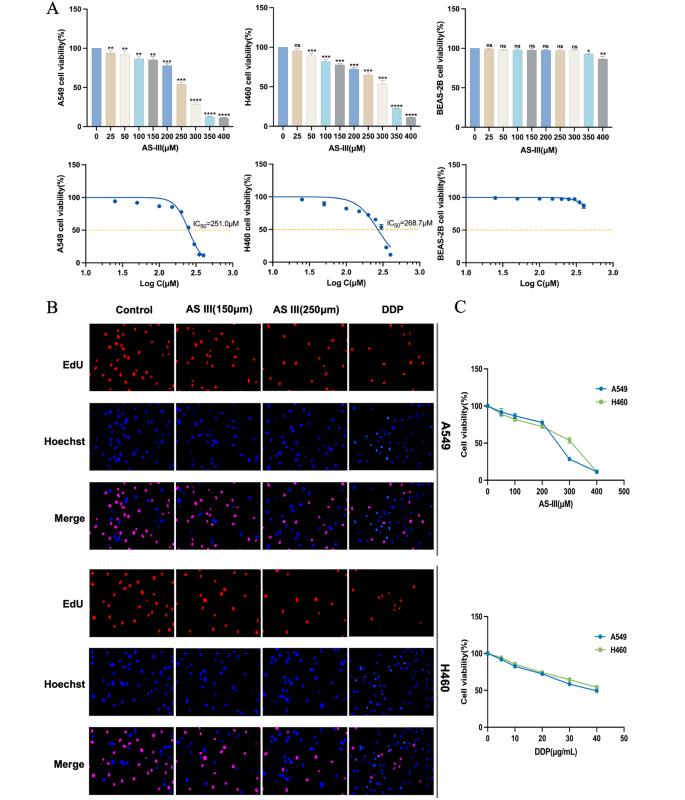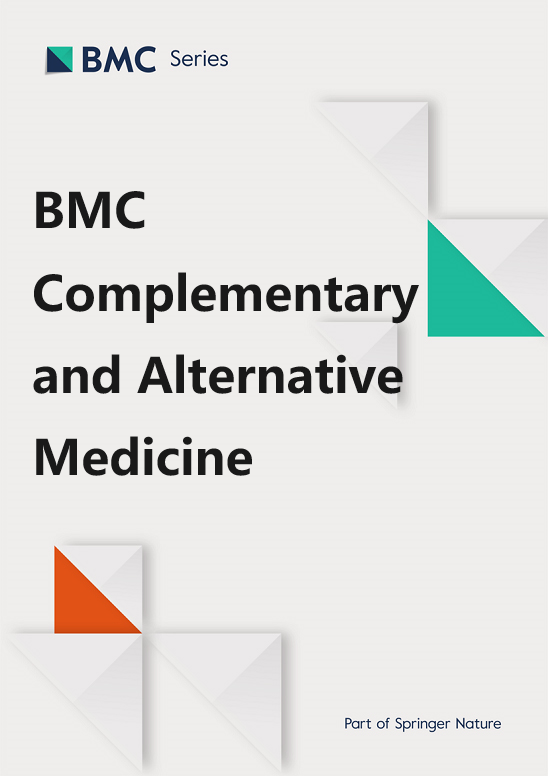蛋白质组分析揭示黄芪皂苷通过诱导细胞凋亡治疗非小细胞肺癌的分子机制
IF 3.4
2区 医学
Q1 Medicine
引用次数: 0
摘要
黄芪皂苷 III(AS III)是从传统中药黄芪中提取的一种皂苷类代谢物,已被证明可有效治疗癌症、心力衰竭和多种消化系统疾病。然而,它治疗非小细胞肺癌(NSCLC)的分子机制尚不清楚。用不同浓度的 AS III 处理人类肺癌 A549 细胞、NCI-H460 细胞和正常人肺上皮细胞 BEAS-2B。CCK-8和EdU染色用于确定AS III在体外的抗增殖作用。对用指定浓度的 AS III 处理的 A549 细胞进行定量蛋白质组分析,并通过 Western 印迹检测凋亡相关蛋白的表达水平。AS III处理可明显抑制A549和H460细胞的增殖,增加其凋亡,并调节与凋亡和代谢相关的功能信号通路。在分子水平上,AS III促进了ANXA1表达的减少(p < 0.01),并增加了Caspase 3和PARP 1的裂解水平;此外,AS III还显著降低了LC3-I/LC3-II的比率。体外实验结果表明,AS III可通过下调P38、JNK和AKT的磷酸化水平(p < 0.01)、抑制Bcl-2的表达(p < 0.01)和上调Bax的表达(p < 0.01)来促进NSCLC细胞凋亡。这些发现提供了 AS III 治疗诱导 NSCLC 细胞凋亡的机制,该机制可能部分是通过调节 P38、ERK 和 mTOR 信号通路实现的。本文章由计算机程序翻译,如有差异,请以英文原文为准。

Proteomic analysis reveals the molecular mechanism of Astragaloside in the treatment of non-small cell lung cancer by inducing apoptosis
Astragaloside III (AS III), a saponin-like metabolite derived from the traditional Chinese medicine Astragali Radix, has been shown to be effective in the treatment of cancer and heart failure, and a variety of digestive disorders. However, its molecular mechanism in the treatment of non-small cell lung cancer (NSCLC) is unknown. Human lung cancer A549 cells and NCI-H460 cells and a normal human lung epithelial cell BEAS-2B were treated with different concentrations of AS III. CCK-8 and EdU staining were used to determine the anti-proliferative effects of AS III in vitro. Quantitative proteomic analysis was performed on A549 cells treated with the indicated concentrations of AS III, and the expression levels of apoptosis-related proteins were examined by Western blotting. AS III treatment significantly inhibited proliferation and increased apoptosis in A549 and H460 cells and modulated functional signaling pathways associated with apoptosis and metabolism. At the molecular level, AS III promoted a reduction in the expression of ANXA1 (p < 0.01), with increased levels of cleaved Caspase 3 and PARP 1. In addition, AS III treatment significantly decreased the LC3-I/LC3-II ratio. The results of experiment in vitro showed that AS III promoted NSCLC apoptosis by down-regulating the phosphorylation levels of P38, JNK, and AKT (p < 0.01), inhibiting the expression of Bcl-2 (p < 0.01), and up-regulating the expression of Bax (p < 0.01). These findings provide a mechanism whereby AS III treatment induces apoptosis in NSCLC cells, which may be achieved in part via modulation of the P38, ERK and mTOR signaling pathways.
求助全文
通过发布文献求助,成功后即可免费获取论文全文。
去求助
来源期刊

BMC Complementary and Alternative Medicine
INTEGRATIVE & COMPLEMENTARY MEDICINE-
CiteScore
7.00
自引率
0.00%
发文量
0
审稿时长
3 months
期刊介绍:
BMC Complementary Medicine and Therapies is an open access journal publishing original peer-reviewed research articles on interventions and resources that complement or replace conventional therapies, with a specific emphasis on research that explores the biological mechanisms of action, as well as their efficacy, safety, costs, patterns of use and/or implementation.
 求助内容:
求助内容: 应助结果提醒方式:
应助结果提醒方式:


